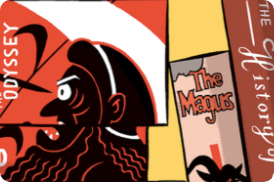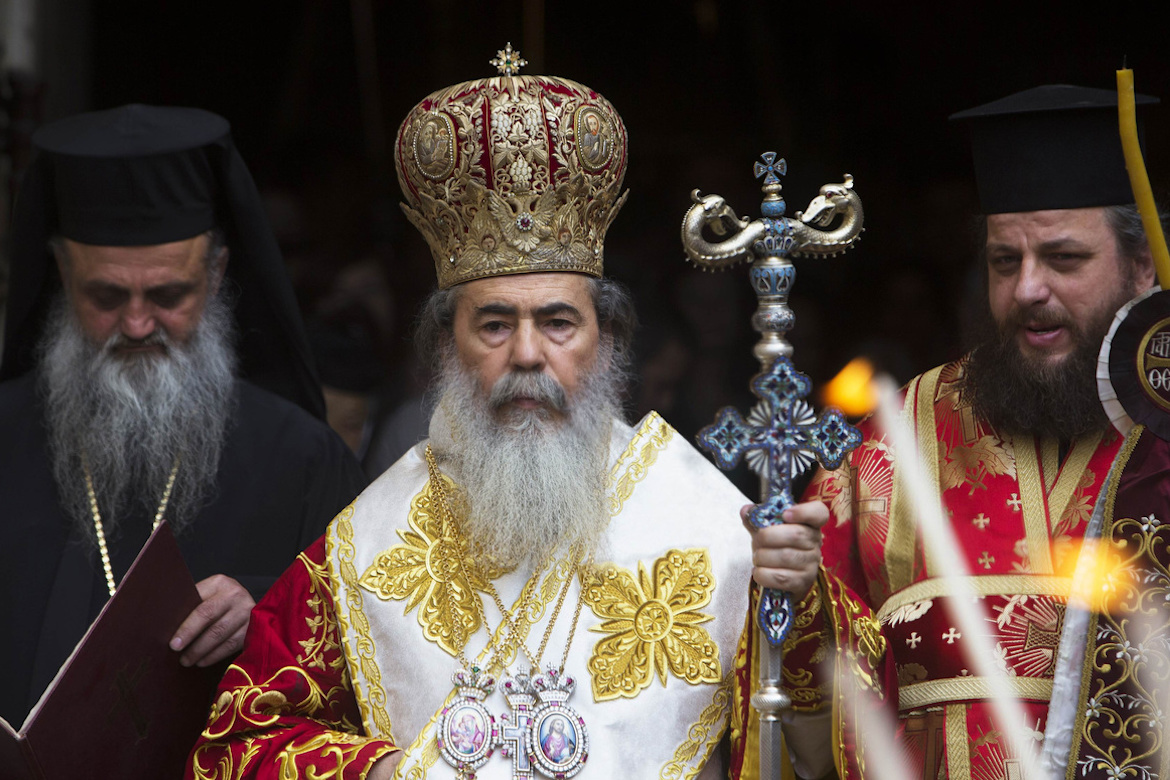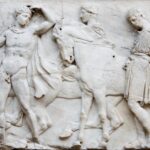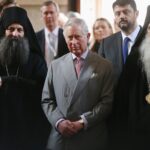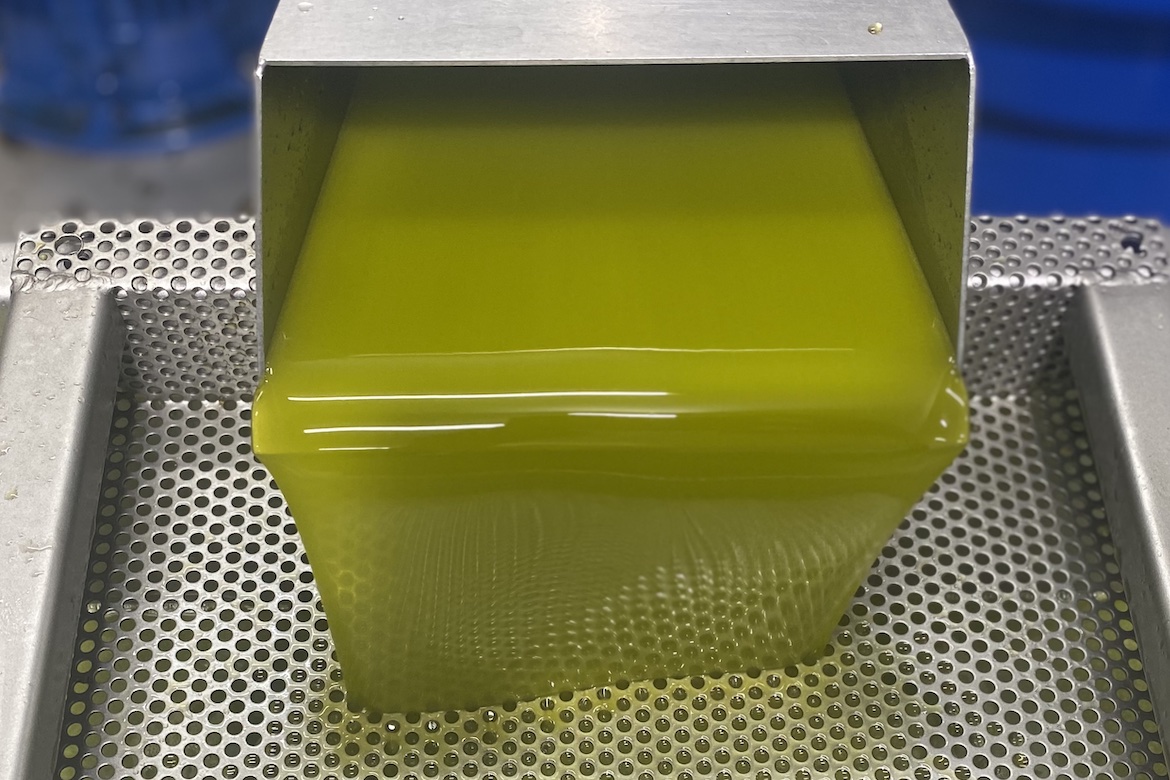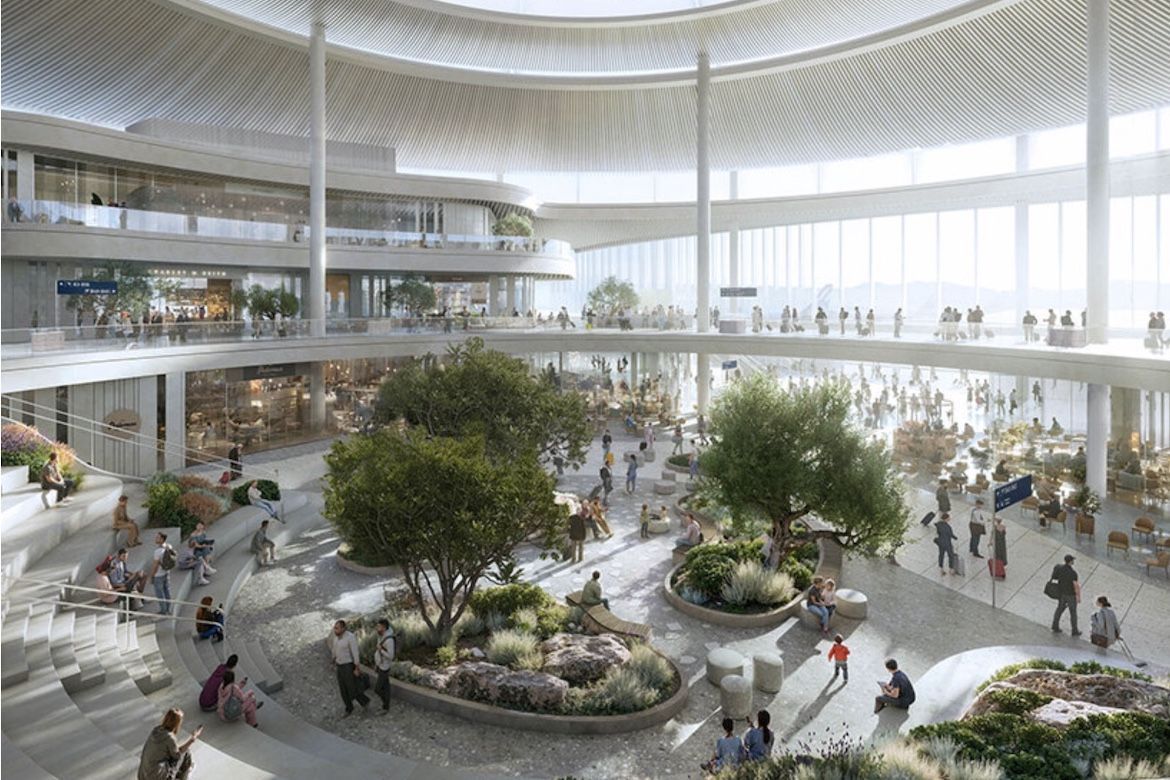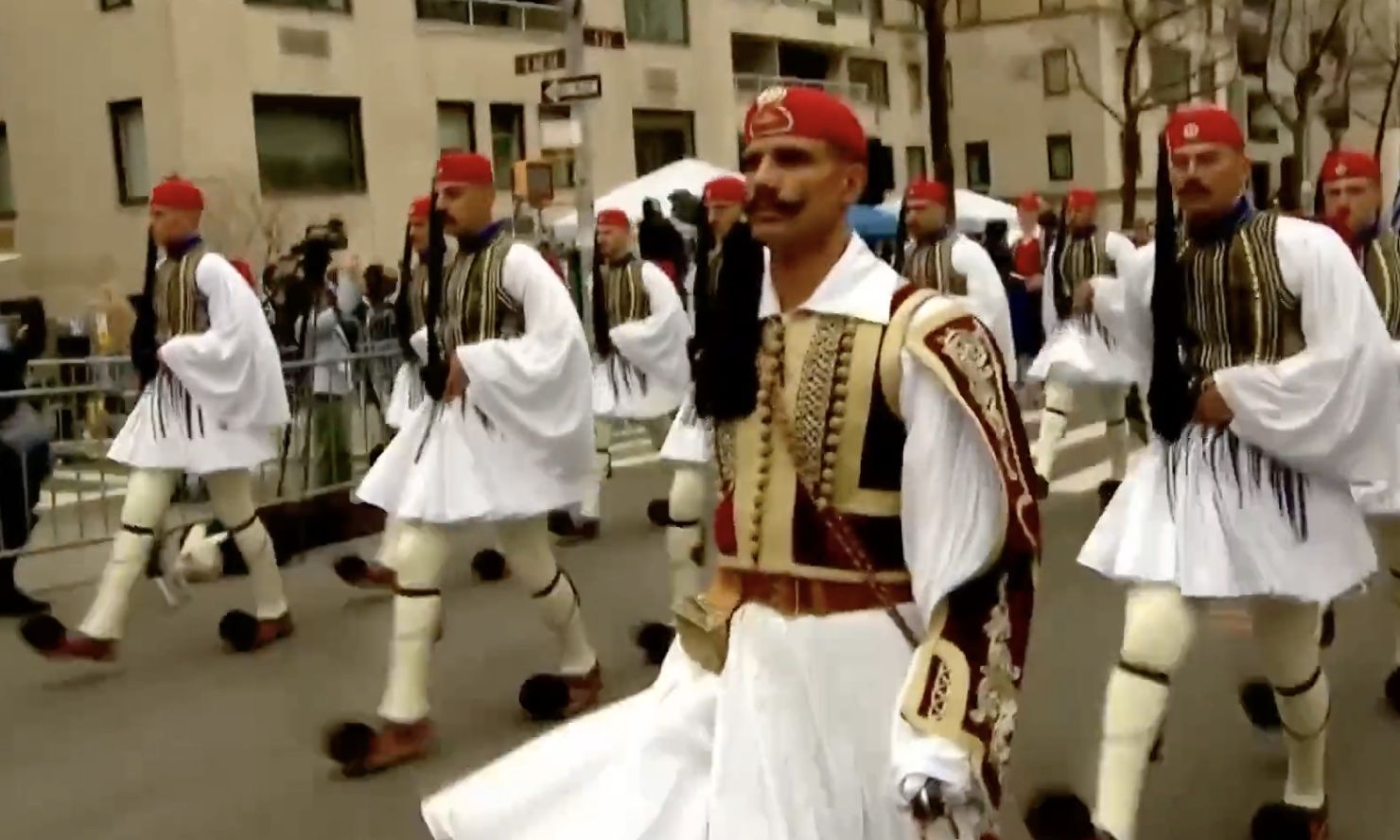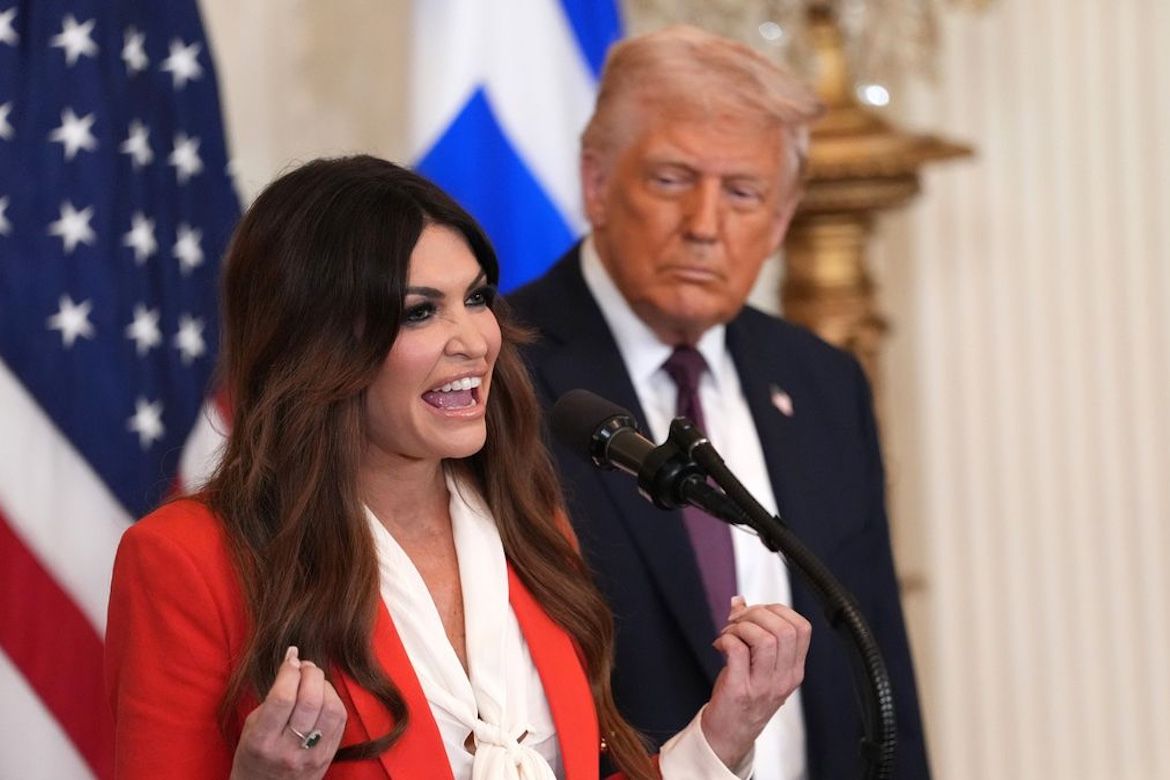Protestors greeted Theophilos, the Greek Orthodox Patriarch of Jerusalem as he and his convoy of bishops arrived at the Church of the Nativity in Bethlehem to celebrate Christmas Eve Services on January 6, 2018.
It was the latest of more than a year of angry protests by members of his own flock who have shouted the word “UNWORTHY,” as well as Muslim residents of Jerusalem and other regions in Israel, as well as Jewish politicians and hard-line media, all of whom question the motives of a series of land transactions by the Greek Orthodox Patriarchate.
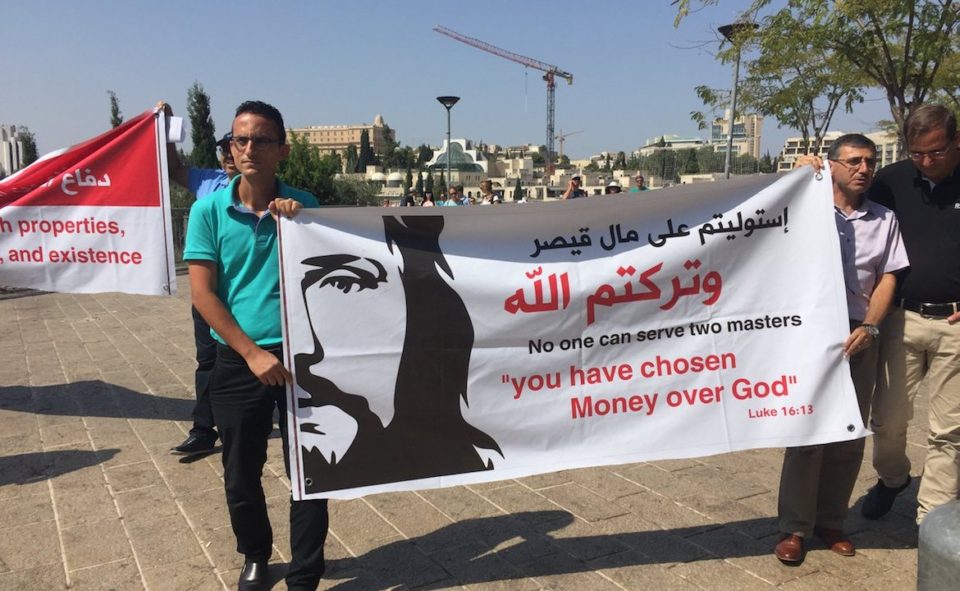
Media in Israel have called the scandal a “Byzantine tale that weaves together real estate, property, mysterious offshore bank accounts, religion and politics.”
The pressure forced Theophilos to embark on an international publicity campaign to defend his actions.
At the heart of the conflict– that has brought together Palestinians of both Muslim and Orthodox Christian background, as well as Jews in Israel– is a series of secret land sales that the Patriarch has made to unnamed businessmen and companies in faraway places like the Caymen Islands.
The Greek Orthodox Church is the second largest land owner in Israel and historically, its leadership and head bishops’ ranks have been filled with ethnic Greeks who govern a flock of Arab Christians who have lived in the region for centuries. The land sale controversy has also exposed the ethnic divides between the Greek-speaking hierarchs and the Arab faithful– but more on that later.
Even Israel’s parliament, the Knesset, is built on Greek Orthodox-owned land.
The sales, which were revealed to the public in exposes and media reports throughout the course of July 2017, immediately caused concern among Israeli lawmakers and real estate officials because nothing was known about the buyers.
Fears have been expressed that “enemy elements” may be involved, prompting members of the Israeli parliament to advance legislation to confiscate these contested properties and transfer their ownership to the state for protection.
It was revealed that large properties, residential and commercial buildings throughout the region were sold in multiple transactions for millions of dollars each to unnamed individuals or what appeared to be shell companies established in faraway places in the Caribbean.
One piece of land in upscale Caesarea was sold to a company called to Saint Ventures, registered on the Caribbean island of St. Vincent.
A similar transaction was exposed for a 1.5 acre plot near Jaffa’s clock tower in Tel Aviv, which was sold in 2013 for around $1.8 million to another Caribbean-registered company, Bona Trading, while another deal was made between a company whose shareholders are not known that is incorporated in the Virgin Islands.
The matter has also enraged large groups of Jewish residents in some of Jerusalem’s wealthiest neighborhoods when the news of the transactions revealed that the land on which their homes sit was sold to unknown entities.
In one deal, the church managed to secretly sign contracts of more than $30 million to sell the land to groups of companies about which very little is known, raising concerns amongst the homeowners about the future ownership of the land.
The matter forced Theophilos to embark on an international public diplomacy campaign to defend his record and the decisions he has made, turning his defense into alarm bells against the Israeli parliamentary proposals to take control of church-owned lands.
In late October he met with Pope Francis at the Vatican, and prior to that he held private meetings with Jordan’s King Abdullah and Palestinian Prime Minister Rami Hamdallah.
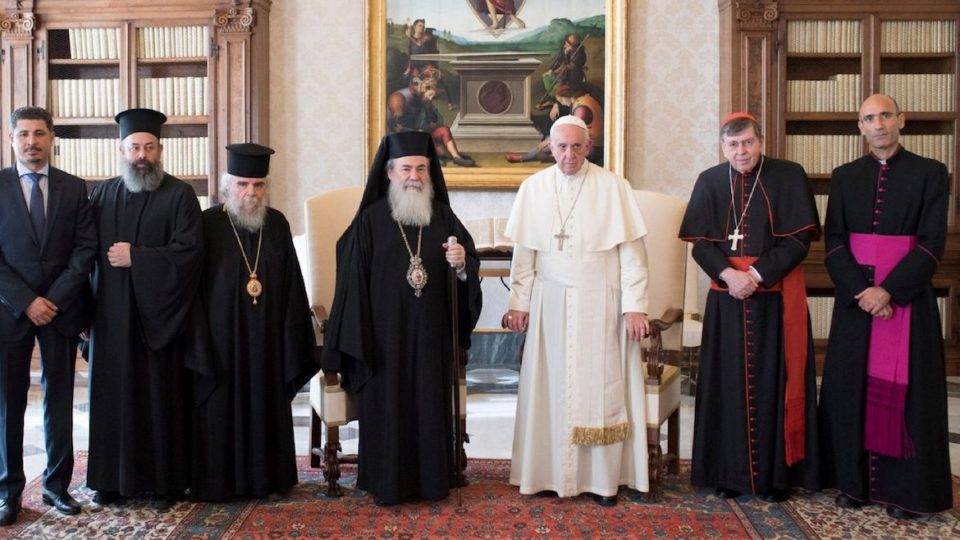
He also met with Greek Prime Minister Alexis Tsipras and Justin Welby, the head of the Anglican Church, and engaged an international Public Relations firm called Debby Communications to make his case and justify his positions.
A widely publicized video of Theophilos was released to the international media during his international tour.
Theophilos and his allies have also turned to the Israeli media to explain their position. In an interview with the Haaretz newspaper, an unnamed ally of Theophilos claiming to represent the Patriarchate told the newspaper that “There are no secret transactions.”
“There are no shady deals. No one is hiding anything. All the buyers are respected and well-known businessmen who for their own reasons prefer not to be exposed.”
The individual (whom the newspaper called M) went on to explain that the transactions were necessary for the financial viability of the church, which although owns large tracts of land in Israel, is cash poor and needs money to manage its institutions.
M. goes further in trying to explain the sales. “The patriarchate is an institution spread over three countries; it has no countries behind it, it has no sources of income. Its only sources of income are its properties. It’s an institution that for years bought and sold to fund its expenses. The church owns 10 percent of the land in the Old City and it yields barely a few hundred thousand dollars a year. You ask for rent, but the tenant says, ‘I’m a member of the sect, I’m not paying.’
“When the patriarch assumed his position the church was $40 million in debt; there were properties with liens and in receivership,” M. continues. “He came and instituted a reform. He doubled the salaries of the priests, provided larger budgets to the schools, and for this he needed money. So we have properties that we are interested in from a strategic perspective and there are properties that we sell and from that we support ourselves.”
The land sale controversy has also opened a long-standing conflict between Greek-born Church leadership in the Holy Land with thousands of faithful, most of whom are Arab Christians and feel their needs are not met, or represented by what they call a “clan” of very protective Greeks who have controlled the institution since Ottoman times.
*****
Since you’re here… I have a small favor to ask.
More and more people than ever before are reading The Pappas Post and despite increasing costs to maintain the site and provide you with the quality content that you deserve, I will never “force” you to pay for our website or add a paywall. I believe in the democracy of the internet and want to keep this site and its enriching content free for everyone. But at the same time I’m asking those who frequent the site to chip in and help keep it both high quality— and free. We’ve implemented a “free-will” annual subscription for those who want to support our efforts. I guess it’s fair to call it a philotimo subscription… because you don’t have to do it but it’s really the right thing to do if you love the site and the content we publish. So if you like The Pappas Post and want to help, please consider becoming a “philotimo subscriber”.Click here to subscribe. If you’d rather make a one time donation, we will gladly accept any amount, with appreciation. Click here to donate any amount.



